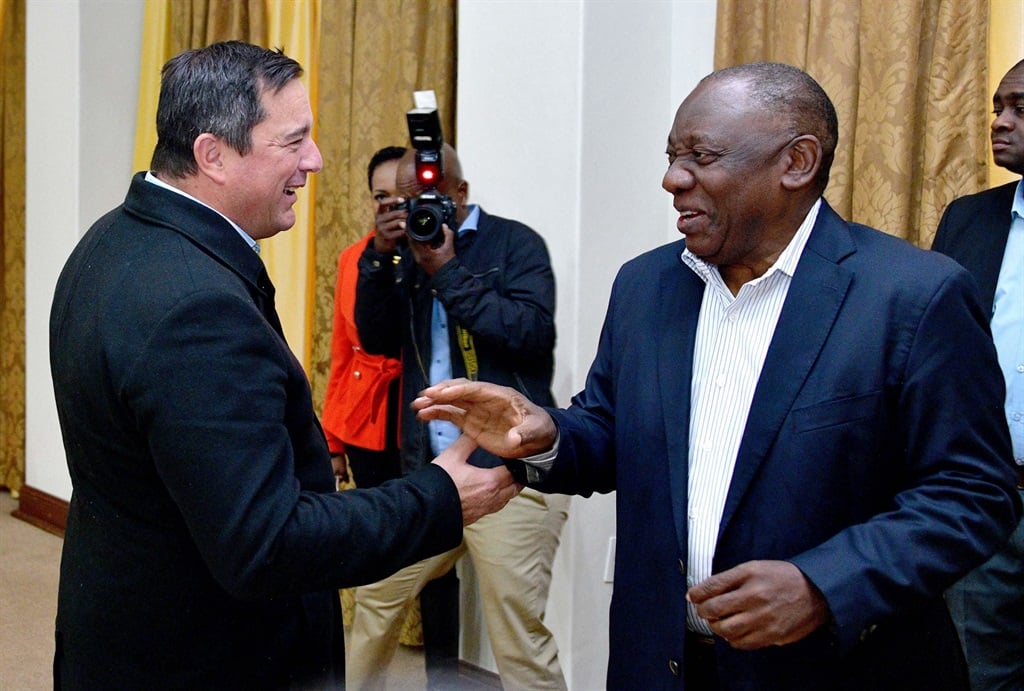
In a significant statement made recently, Democratic Alliance (DA) leader John Steenhuisen reiterated that the party’s commitment to its Government of National Unity (GNU) statement of intent with the African National Congress (ANC) remains unchanged, despite mounting political pressure and public skepticism. The comments come at a time when both parties are navigating complex political landscapes in South Africa, with the opposition parties increasingly questioning the viability and moral standing of such alliances.
Steenhuisen, speaking at a press conference earlier this week, emphasized that the DA’s position on working alongside the ANC in a potential GNU is steadfast. He pointed out that such an arrangement is crucial for ensuring national stability and addressing the critical challenges facing the country, including economic recovery, security issues, and public service reform.
While the political landscape in South Africa continues to evolve, we believe that the Government of National Unity remains a necessary path for moving forward. Our aim is to bridge the divides in our society and provide a united, forward-thinking government that will place the needs of the people above party politics, Steenhuisen explained.
The DA’s statement of intent to work with the ANC in a GNU has sparked intense debate across South African political circles. Many critics argue that such an alliance could compromise the DA’s core values and weaken its ability to hold the ANC accountable, particularly in the wake of several corruption scandals that have tarnished the ruling party’s image. However, Steenhuisen defended the decision, stressing that his party has always prioritized governance and service to the nation, even if it means working alongside adversaries.
For the ANC, the prospect of a GNU has been a topic of internal discussion as well, with some factions within the party wary of aligning too closely with the DA, fearing a potential loss of influence and control. The ruling party is also dealing with a growing number of discontented members, and any move towards a coalition with the DA could further divide the party’s base.
Political analysts have expressed mixed opinions on the DA and ANC’s potential partnership. While some see it as a pragmatic approach to overcoming the challenges of the country’s polarized political climate, others warn that it could be a risky maneuver that undermines the DA’s credibility as a genuine opposition party. The unpredictability of the South African political system, where coalitions often result in compromises that weaken governance, adds to the uncertainty surrounding this arrangement.
In recent months, the DA has been vocal about its desire to see the ANC take a more accountable approach to governance. However, the DA’s willingness to enter a GNU with the ANC shows a shift towards more conciliatory politics, where collaboration supersedes the rigid ideological stances often seen in traditional party politics. This could be seen as a strategic move to ensure the DA has a hand in shaping the future of South African politics, especially as the country prepares for the next general elections.
Steenhuisen’s comments come just ahead of a series of crucial meetings between the DA and ANC leadership. The parties are expected to discuss their respective policy priorities, explore potential collaboration on key national issues, and determine the feasibility of a GNU. While it remains to be seen whether these discussions will lead to a formal agreement, the DA’s ongoing support for the GNU remains a pivotal point in the country’s political discourse.
As South Africa continues to grapple with the impacts of economic decline, unemployment, and inequality, the question of whether a Government of National Unity could provide a sustainable solution is one that will likely dominate political discussions in the months to come. The DA’s continued insistence on keeping the GNU option on the table indicates that both it and the ANC will likely need to navigate these challenging times together, even if their cooperation is met with resistance from some factions within their respective ranks.
For now, South Africa waits to see whether this commitment to a GNU will be a fleeting hope for unity or a defining characteristic of the future political landscape.

